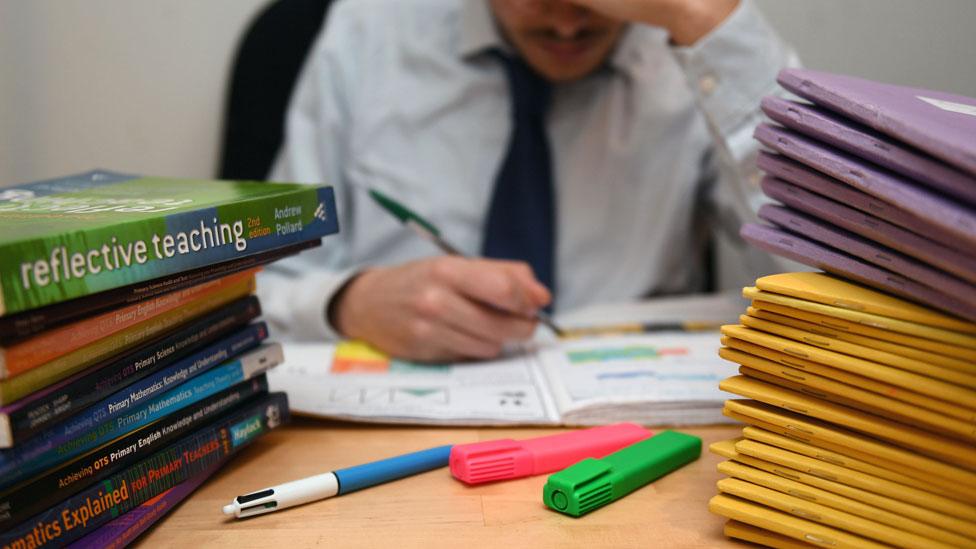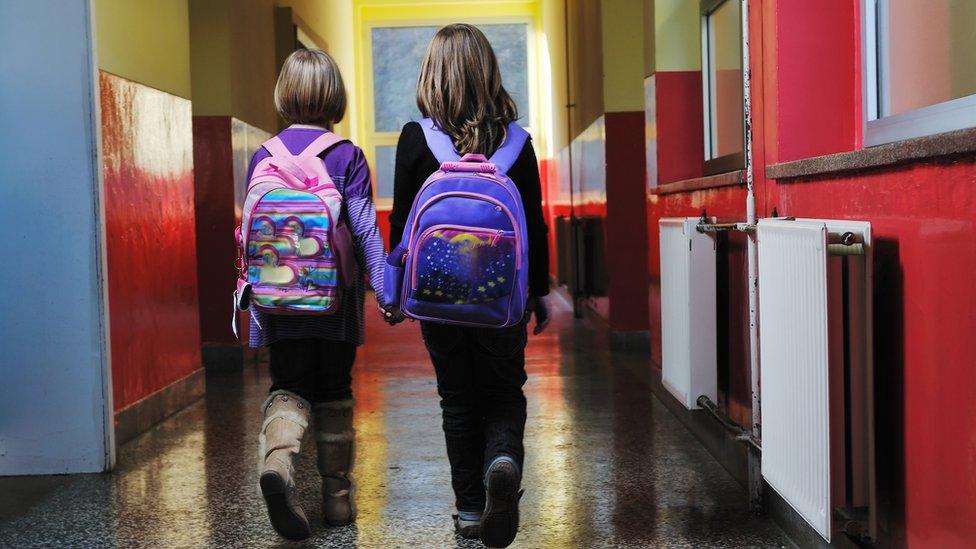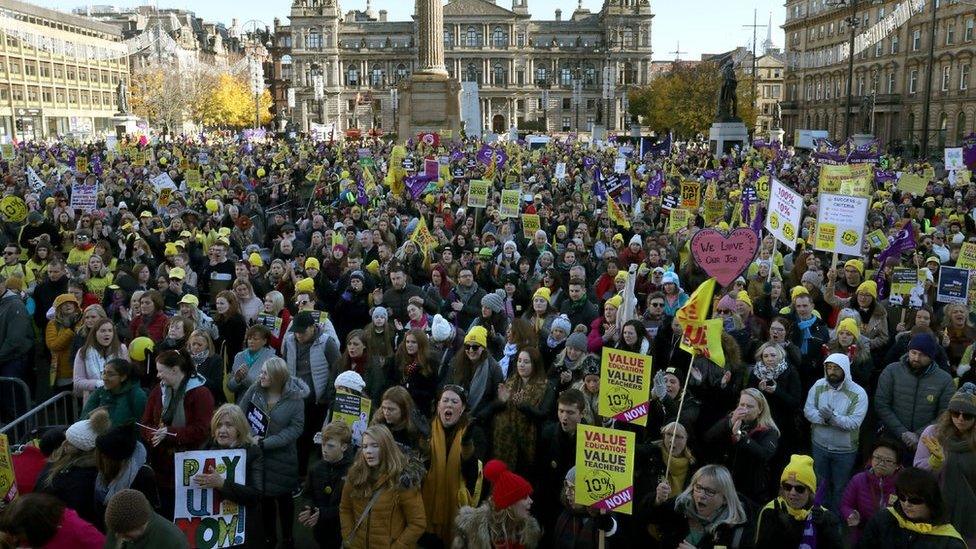Q&A: Is a teachers' strike inevitable?
- Published

Scotland's biggest teachers' union plans to ballot members on strike action over pay. But is a strike inevitable? Or is the threat of action enough? BBC Scotland's education correspondent Jamie McIvor explains.
What is the pay dispute about?
Last year, the Educational Institute of Scotland (EIS) and other teachers' unions submitted a claim for a 10% pay rise which they wanted to take effect last April.
They argued that such a rise would help restore the value of teachers' pay - which they claimed had fallen by a fifth in real terms in the past decade - and help deal with the problems attracting enough new people into the profession.
Is that not a lot more than most employers are offering, though?
The current official pay offer is essentially for three one-year pay rises, each for 3%. However, other changes mean many teachers would receive significantly more.
The deal offers a 3% pay increase for those earning up to £80,000 in 2018-19, with those at or above that level receiving a flat rate increase of £1,600.
Then in both 2019-20 and 2020-21 teachers would get a further 3% rise.
But many would get bigger rises.

The Scottish government said its additional contribution to restructure the pay scale would see all teachers on the main grade scale receiving at least a 5% increase in 2018-19, which would be backdated to April last year.
Some teachers would receive up to 11% in one year in conjunction with annual progression.
Is this likely to be the final offer?
No. Teachers' pay is negotiated jointly by councils, the Scottish government and unions. Councils employ teachers but they receive much of their money from the government, and teachers' pay and conditions are consistent across Scotland.
The Scottish government has proposed an improved offer. Council leaders will decide whether to actually make this offer when they meet at council umbrella body Cosla on 25 January.
This offer would mean:
A headline rise of 9% between January 2018 and April 2019.
A further 3% rise next year.
What happens if this offer is made?
The EIS national council is also meeting on 25 January. It will decide whether to put this offer to their members in a ballot and whether to recommend it.
It will also decide whether to continue with the ballot on strike action.
Some members may believe that the revised offer - while well short of a 10% one year rise - still represents a significant step towards a restorative pay rise and believe it is the best they are likely to achieve at present.
Others may argue that if even the threat of industrial action has led to an improved offer, further improvements or concessions may still be possible while that threat continues.

If the ballot happens, is a strike inevitable?
No.
First of all, the ballot will run for several weeks which provides more time to solve the dispute.
Secondly, there is also the possibility that too few members will support action. Union law means that 40% of those entitled to vote would need to back action and the turnout would need to cross 50%.
- Published11 January 2019
